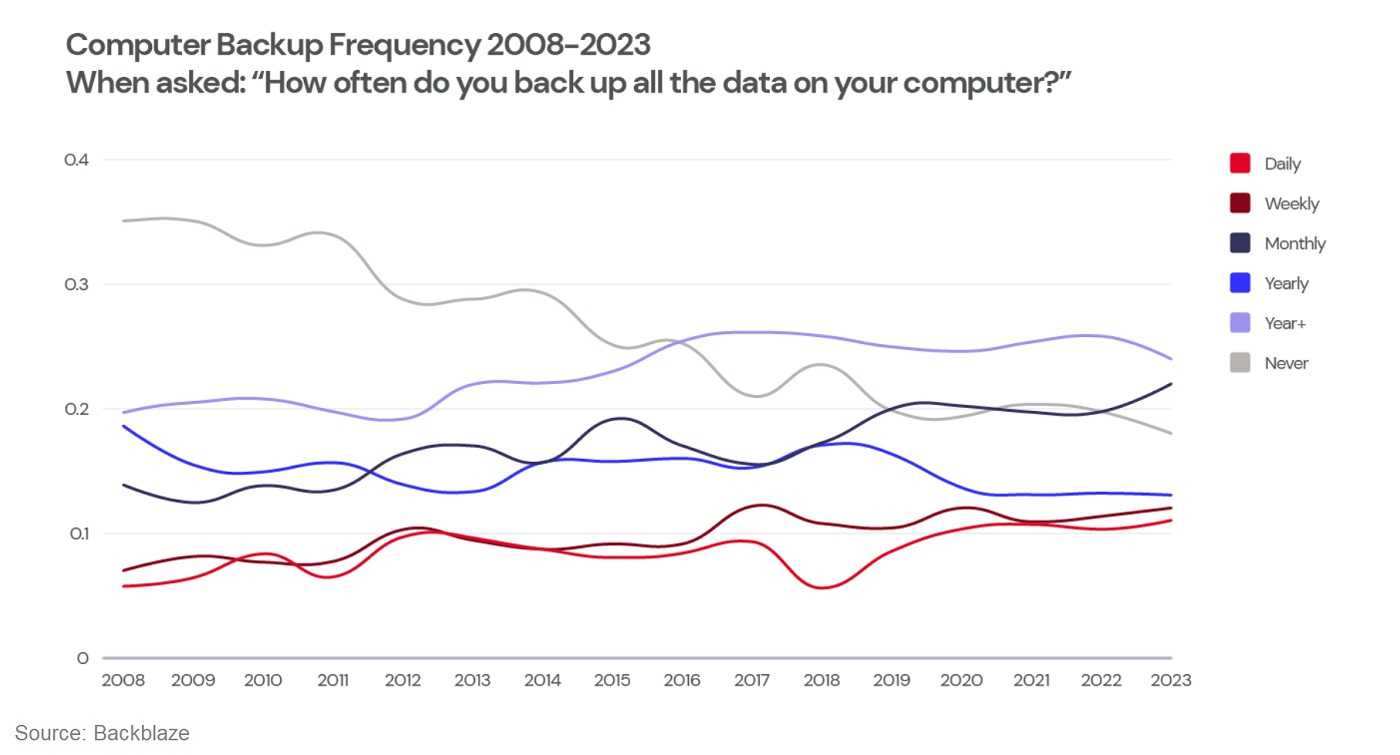It’s getting close! The anticipation is building. It’s a great day on March 31, 2024. It may not be on your calendar, but it should be. That’s because just around the corner is World Backup Day! Yes, it’s a thing. There’s even a website. If you visit that website, you will see some stats that might just blow your mind as much as realizing it’s almost World Backup Day!
One such stat is that a whopping 21% of people, worldwide, have never done a backup. That’s astounding. Why? Well, regular backups of important data are a cornerstone of not only being able to retrieve your data if you’re one of the 113 people who have lost access to their phone in the last minute, but it’s crucial to effective cybersecurity practices. In today's digital age, where cyber threats loom large and data breaches are increasingly common, safeguarding data through regular backups is critical for individuals and organizations alike.
You may be a naysayer, but the truth is, backups serve as a safety net against data loss. Whether due to ransomware attacks, hardware failures, human error, or natural disasters, the risk of losing valuable data is ever-present. Regularly backing up data ensures that even if the original files are compromised or lost, they can be easily restored from backup copies, minimizing disruption to operations and preventing potentially catastrophic consequences. Think life and death situations, such as those in hospitals! If there’s a ransomware attack, such as the one that hit Ardent Health Services at the end of 2023, it may cause surgeries to be interrupted or postponed, or in extreme cases could lead to death.
Recently, the FBI warned about potential ransomware attacks by ALPHV/Blackcat groups against hospitals. Another shocking stat: The FBI said this group has made at least $300 million in ransom funds since September of 2023 from more than 1,000 victims.

Backups provide resilience against such ransomware attacks, which have become a pervasive threat in recent years, as well as many other things, such as losing your device and all the data within it. By maintaining up-to-date backups stored securely offline or in a segregated network, everyone can thwart ransomware attacks without succumbing to extortion, thereby preserving data integrity and avoiding financial losses.
Additionally, backups support business continuity and disaster recovery efforts. In the event of a cyber incident or other disruptive event, having access to recent backups enables organizations to quickly resume operations and mitigate downtime. This is crucial for maintaining customer trust, meeting regulatory requirements, and minimizing the overall impact on productivity and revenue.
Regular data backups are also often a requirement of regulators such as HIPAA or GDPR in Europe. These procedures can ensure that sensitive information is adequately protected and can be restored in the event of a security incident or audit.
On a personal level, regular backups are indispensable for safeguarding against data loss, mitigating the impact of cyber threats.
By prioritizing data backup as an integral component of their cybersecurity strategy, individuals and organizations can effectively mitigate risks and safeguard their most valuable asset: information.
So, get right on it. It doesn’t matter if you backup to a hardware device or to the Cloud. There are many types of devices with enough storage capacity at reasonable prices; so there really aren’t any excuses. The important thing is that you do it.
And now that you know all about World Backup Day, you can participate by backing up your devices now.